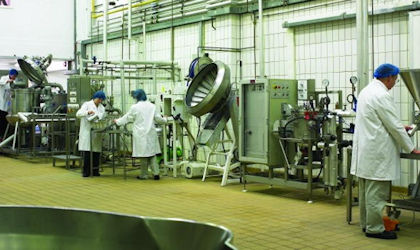NPD process optimisation

To discuss your needs
As companies grow and expand, operational complexity increases - often accompanied by a higher number of SKUs. However, in smaller businesses, New Product Development (NPD) processes tend to be highly agile and evolving, with limited formalisation of roles, responsibilities, or structured ways of working. While this flexibility can support early-stage innovation, it often becomes a bottleneck as volumes grow and complexity increases. It is at this stage that the absence of structure can lead to critical oversights that can negatively impact product quality, launch timelines, food safety, and regulatory compliance.
Consequently, we can support clients with a more structured approach to NPD, which can help secure the most critical aspects - namely food safety and legal compliance - while streamlining their broader product and packaging development processes. This all helps to achieve reduced trial repetitions, more efficient resource use, and a higher percentage of successful product launches.
Step 1: NPD Process Audit
The process begins with a technical audit of the client’s current NPD framework. Using a methodology similar to that of a formal audit, we review existing documentation and process flowcharts to define the scope of a site visit.
This on-site visit (or remote engagement via Teams if necessary) includes:
- Cross-functional interviews: Conducted individually with key stakeholders from each function to uncover pain points, risks, and potential improvements.
- Process mapping: Leveraging Lean Six Sigma techniques to map out the current NPD process, identifying value-adding and non-value-adding activities.
Step 2: Analysis and Recommendations
Following the interviews and process mapping, we summarise the findings and develop key recommendations for the client. A closing meeting is then held with the client’s team to review initial insights and align on next steps. A formal report is delivered within two weeks, detailing the findings and a roadmap for process improvements.
Benefits
This structured yet flexible approach to NPD helps ensure:
- Early identification and mitigation of risks related to food safety and compliance.
- Streamlined development cycles with reduced waste and inefficiencies.
- Improved cross-functional alignment and role clarity.
- Increased success rate of product launches.
While conducting this work on-site is ideal for quality interactions during interviews and workshops, the approach can be adapted to remote execution where needed, as it does not require production facility inspections.
You may also be interested in
Key services

NPD process optimisation
We can support clients with a more structured approach to NPD, which can help secure the most critical aspects

Product cost optimisation
Identify the best ways to unlock elusive value in your food and drink products

Bakery product development
Product innovation and reformulation is essential in the highly competitive bakery sector.

Gluten free product development
Assessing the gluten content and gluten-free status of raw materials and products.

Nutrition, diet and health
Nutrition and health has become increasingly important across the entire food supply chain.
Product development training courses
Explore our product development related courses including; New product development and HACCP in new product development
Are you getting the most from your Membership?
Watch our membership FAQ videos and find out more about Member Service Account spending, Member Interest Groups, help and advice
Where we refer to UKAS Accreditation
The Campden BRI group companies listed below are accredited in accordance with the recognised International Standard ISO/IEC 17025:2017 by the United Kingdom Accreditation Service (UKAS). The accreditation demonstrates technical competence for a defined scope of methods, specific to each site, as detailed in the schedules of accreditation bearing the testing laboratory number. The schedules may be revised from time to time and reissued by UKAS. The most recent issue of the schedules are available from the UKAS website www.ukas.com. Campden BRI (Chipping Campden) Limited is a UKAS accredited testing laboratory No. 1079




